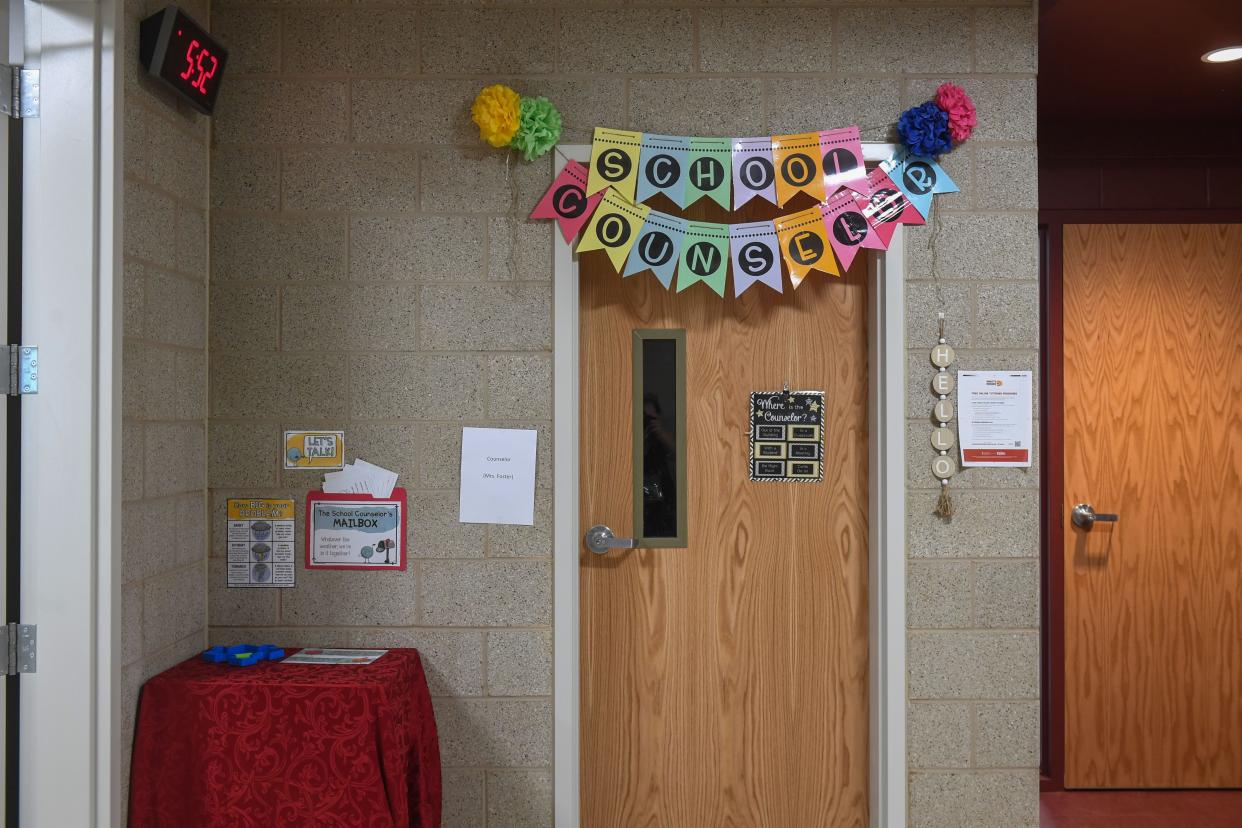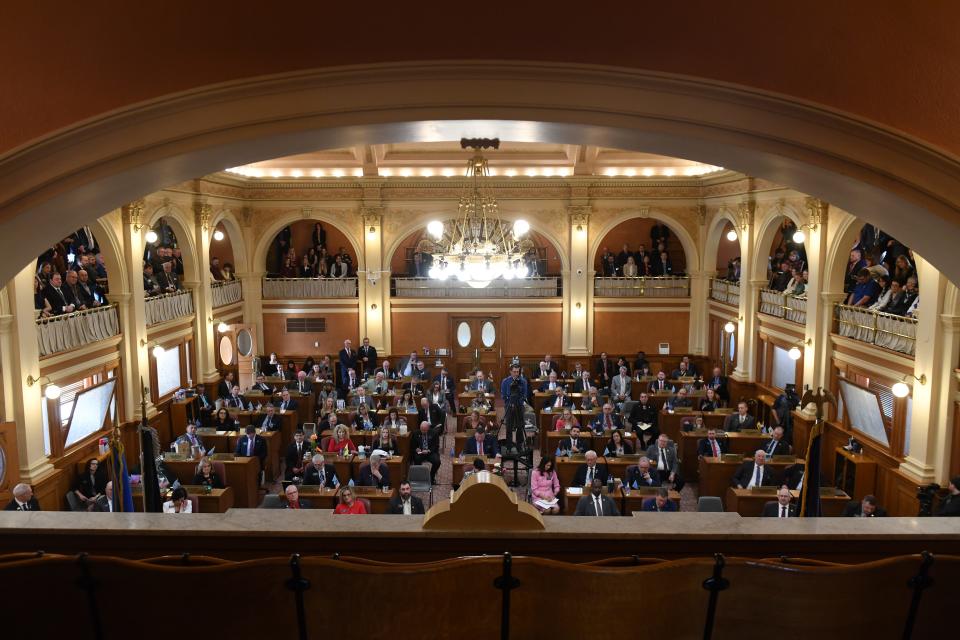Four bills seek to address South Dakota's workforce shortages in long term care facilities

Rebecca Christiansen has spent over $1,000 for her counseling licenses.
The Aberdeen-based counselor is licensed to practice in South Dakota and North Dakota, and she is working toward getting licensed in Minnesota so she can see a variety of clients at her business. She hasn’t just spent the money on getting only the licensure. Fees also includes gathering application materials from college transcripts to national exam scores.
“All of this takes time. Time that I'm not able to see my clients and time away from my practice or from my family,” Christiansen said.
But a package of four bills currently going through the South Dakota Legislature could make Christiansen’s quest of seeking out-of-state licensure a bit easier.
More: Study group proposes a dozen ideas for South Dakota long-term care with up to $9 million cost
Known as compact agreements, the bills focus on four areas of healthcare: counseling, psychology, advanced nursing and social work. The agreements would recognize out-of-state licenses and advocates say they could help alleviate some of the workforce shortages South Dakota has faced in the past few years.
“They're able to come into our state with their profession and their professional license and have less of that burden,” said Rep. Taylor Rehfeldt, R-Sioux Falls, who has championed the bills.
But critics argue the compacts would take away state control and place that control in the hands of outside forces.
What do the compacts allow for?
Rehfeldt used the example of a social worker who has a license from Nebraska moving to South Dakota. With the compact, South Dakota would recognize that social worker’s license.
“They still have to follow South Dakota State law pertaining to their profession, but what it does is it reduces administrative burden for those professionals and it also reduces costs for them,” Rehfeldt said.
Christiansen told lawmakers in the House Health and Human Services committee that when she was a counselor at Presentation College when it was open, it was almost impossible to continue providing therapy services to students who lived outside of South Dakota when they went home for breaks.

Because she wasn’t licensed in those states, “this created a barrier of treatment for those individuals.”
Some of the compacts’ language also features more rigorous requirements than what South Dakota law requires for certain areas.
For example, in the advanced practice registered nurses compact, nurses like certified nurse anesthetists, clinical nurse specialists, certified nurse practitioners and certified nurse midwives, have to have 2,080 hours of training. Currently, advanced practice registered nurses in South Dakota need 1,040 hours of training.
Do compacts cede local and government control?
Concern about the compact bills centered on this question: If the legislation’s language had been approved by an outside entity, does the state give away a certain amount of control over who does and does not get licensed?
Rep. Kevin Jensen, R-Canton, brought an amendment to one of the compact bills that would reaffirm that the compact language can’t supersede state law, based on his concern.
“The need for nurses is acute but I don’t see why we can’t adopt this kind of language,” Rep. Fred Deutch, R-Florence, said.
More: Nursing home complaints in South Dakota up 38% since 2022
Rehfeldt explained if the state changed the compact language, all the states on the compact would have to agree to the changes.
The amendment failed on the House floor.
The South Dakota Legislature passed a law in 2023 that recognized outside professional licenses. Rep. Chris Karr, R-Sioux Falls, mentioned this in his arguments against the compacts, saying the law should already cover those types of licenses.
But SB 76 doesn’t recognize the four licenses covered by the compact agreement. Another compact, also signed in 2023, recognized occupational therapist licenses.
Treating the workforce problem
The compacts come out of a summer study that focused on the problems long term care facilities are facing. At least 18 nursing homes across South Dakota have closed since 2015 for a variety of reasons including staffing, according to South Dakota Searchlight.
“If you don't have enough people to care for the patients, then those long term care facilities cannot be successful and they can't care for patients,” Rehfeldt said.
More: Are government subsidies the solution to the child care crisis in South Dakota?
The compacts can also aid military families who tend to move around a lot and can help provider costs go down, Rehfeldt said.
“It’s a workforce solution for our elderly patients,” she said.
For Christensen, the Aberdeen counselor, the compacts would allow her to keep living in South Dakota. And it would help the clients she sees.
“It also allows clients to develop strong working relationships with counselors and not have to worry that if they move that they have to start all over, sharing their personal story over and over with a new therapist that they may or may not connect with,” she said.
This article originally appeared on Sioux Falls Argus Leader: South Dakota legislature debates nursing home compact bills

